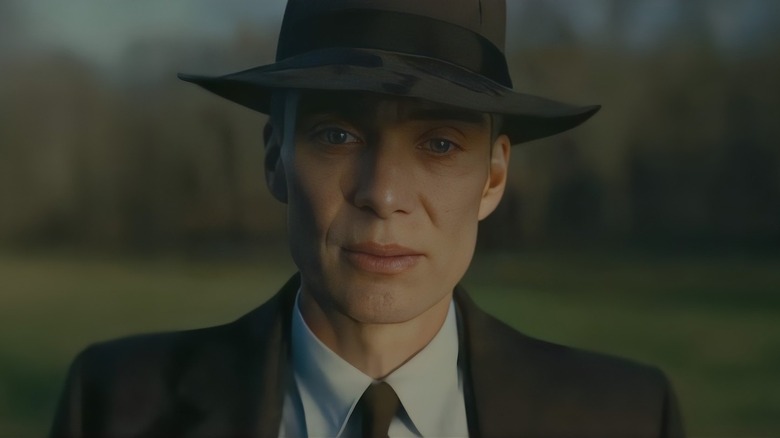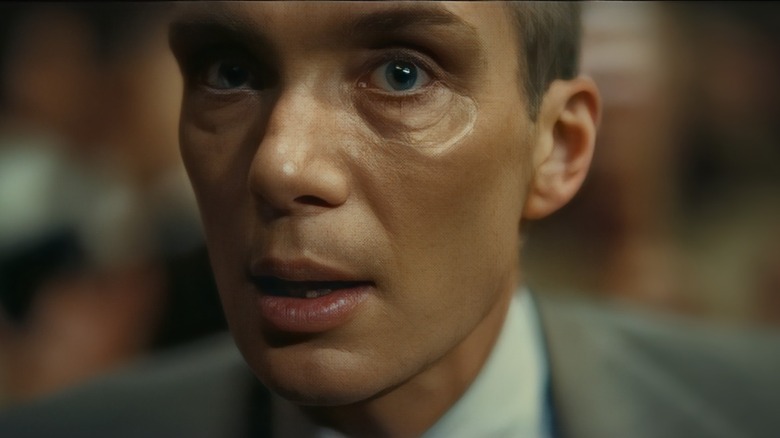Oppenheimer: How Nolan's First-Person Script Avoided A 1947 Film's POV Mistakes
At face value, "Oppenheimer" certainly seems like a change of pace for the prolific writer and director Christopher Nolan, whose past work includes a slew of cerebral, high-concept films like "Inception," "Interstellar," and "Tenet." Though "Oppenheimer" reportedly lives up to the epic scale of Nolan's previous work (with many critics left stunned after the film's world premiere), the film itself is actually a historical drama that centers around the so-called "father of the atomic bomb," J. Robert Oppenheimer (Cillian Murphy).
Despite the biographical nature of "Oppenheimer," the screenplay for this film may just be Nolan's most experimental writing project to date, as he chose to write the entire script in the first person. Although it's certainly unusual to write a script in such a way, Nolan actually took special care to make sure that the film was not presented in the first person, referencing a similar mistake made by the 1947 noir mystery "Lady of the Lake," which is filmed almost entirely in a first-person point of view.
"It's been tried before, things like 'Lady in the Lake' or whatever, but it doesn't really work that way because you have to see the character," Nolan said during an interview with The Playlist. "There are ways of creating intense subjectivity through camera blocking and placement and so forth." Through camera blocking and movement, Nolan is essentially able to tell a first-person story through a third-person perspective, sidestepping the awkward framing and structure of a true first-person film like "Lady of the Lake."
Nolan felt that a first person script was the correct way to tell this story
Because the third-person screenplay format is practically baked into the medium itself, there's no question that Christopher Nolan's "Oppenheimer" script is a revolutionary achievement, particularly for the way that he is able to translate that first-person narrative onto the screen.
While it might seem a bit odd to write a story in the first person and then tell it in the third person, Nolan himself seems to have chosen this unique perspective early on in the writing process. "Just a few pages in really to writing it, something felt wrong with the usual screenplay form and so I just tried it as an experiment," Nolan explained in his aforementioned interview with The Playlist. "It worked well for this because I needed to remind myself as I was writing, that this is intensively subjective." Nolan said that he was initially hesitant to take such a drastic departure from the normal screenwriting process, but after showing his work to his brother Jonathan, they both decided this would be the best way to convey J. Robert Oppenheimer's story.
Nolan also described the way that this first-person screenplay created a unique experience on set. Specifically, it challenged Nolan and director of photography Hoyte van Hoytema to come up with creative camera choices to convey each scene. Not only do Nolan's comments emphasize the importance of the first-person perspective to the story of "Oppenheimer," but he also seems to have embraced the considerable challenge of using a first-person script in a visual medium. In any case, there's no doubt that Nolan's experimental script for "Oppenheimer" is one of a kind, putting the audience right behind the eyes of the father of the atomic bomb.

